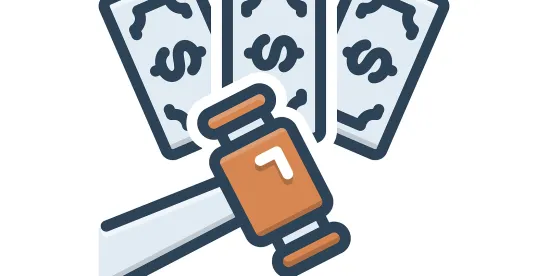President Donald Trump has signed a sweeping Executive Order titled “Guaranteeing Fair Banking for All Americans,” aimed at preventing financial institutions from denying services to individuals or businesses based on political or religious beliefs, lawful business activities, or other constitutionally and statutorily protected attributes. While the impetus for debanking historically has been political and regulatory action, the Executive Order requires the depository institutions to take action.
The Order states that “no American should be denied access to financial services because of their constitutionally or statutorily protected beliefs, affiliations, or political views,” and that banking decisions “must instead be made on the basis of individualized, objective, and risk-based analyses.”
This measure is the administration’s attempt to address what it terms “politicized or unlawful debanking”—a practice it defines as restricting or modifying access to banking products or services for political reasons or because of lawful activities that a financial services provider disfavors.
Key Directives in the Executive Order
The Order contains several significant instructions to federal agencies and financial regulators.
Treasury Department Strategy
Within 180 days, the Secretary of the Treasury, in consultation with the Assistant to the President for Economic Policy, must develop a comprehensive strategy to combat politicized or unlawful debanking. This plan may include recommendations for legislative action, new regulations, and other government-wide initiatives to address the actions of regulators and financial institutions.
Federal Banking Regulators
The Order applies broadly to “federal banking regulators,” defined to include:
- The Small Business Administration (SBA)
- Federal Reserve Board (FRB)
- Federal Deposit Insurance Corporation (FDIC)
- Office of the Comptroller of the Currency (OCC)
- National Credit Union Administration (NCUA)
- Consumer Financial Protection Bureau (CFPB)
- Securities and Exchange Commission (SEC)
- Commodity Futures Trading Commission (CFTC)
- Federal Housing Finance Agency (FHFA)
These agencies must take multiple actions:
- “Reputation Risk” – Within 180 days, agencies must remove “reputation risk” or equivalent concepts from examination manuals, guidance, and supervisory materials if such concepts could enable politically motivated banking restrictions.
- Guidance to Examiners – Agencies must formally instruct examiners on the elimination of reputation risk as a regulatory consideration.
- Review and Revision of Regulations – Agencies must consider revising or rescinding any rules that could facilitate politicized or unlawful debanking.
- Targeted Enforcement – Within 120 days, regulators must identify institutions that have policies or practices—past or present—that encourage or require politicized or unlawful debanking, and take “appropriate remedial action,” which may include fines, consent decrees, or other disciplinary measures.
- DOJ Referral – If a regulator finds evidence of religious-based debanking that violates the Equal Credit Opportunity Act (ECOA) and compliance cannot be obtained, it must refer the matter to the Department of Justice for possible civil action.
Small Business Administration Provisions
The SBA faces some of the most detailed obligations under the Order. Within 60 days, it must require all SBA lenders to:
- Review past denials of service for potential politicized or unlawful debanking violations, reinstate eligible clients, and notify them of reinstatement.
- Identify potential clients who may have been denied banking or payment processing services in violation of SBA requirements and inform them of the opportunity to reapply or reengage in services.
Background and Context
The Executive Order builds on a series of President initiatives to guarantee “fair access” to financial services. In the final months of President Trump’s first term, the OCC introduced the Fair Access to Financial Services Rule, which would have required large banks to provide services to all lawful businesses and individuals unless risk-based reasons dictated otherwise. That rule was halted in early 2021 following the Biden administration’s decision to pause its implementation.
The issue has resurfaced since the November 2024 presidential election. Some groups have warned of politically motivated banking restrictions connected to “Operation Chokepoint,” a 2013 Department of Justice initiative in which federal banking regulators allegedly pressured banks to cut ties with certain lawful but disfavored industries.
President Trump has also cited personal experiences with banking restrictions. In January 2025, his Strengthening American Leadership in Digital Financial Technology Executive Order recited fair access principles in the context of promoting blockchain and digital asset adoption.
On Capitol Hill, Republicans have reintroduced such as the Fair Access to Banking Act, which would impose access requirements on large institutions and restrict their access to certain Federal Reserve services if they fail to comply. Other proposals, such as the Financial Integrity and Regulation Management Act (FIRM Act), would remove “reputational risk” from supervisory frameworks. In parallel, several federal banking agencies have announced plans to strip reputation risk considerations from examination manuals.
At the state level, Florida, Tennessee, and Idaho have enacted their own fair access laws, and more than a dozen states are considering similar measures. In addition, several state attorneys general have sent letters to financial institutions raising concerns about debanking practices.
Scope and Potential Impact
The new Executive Order goes further than most current legislative proposals by
- Applying to all banks, savings associations, credit unions, and financial institutions—without a minimum asset threshold; and
- Defining “federal banking regulators” broadly to include agencies not traditionally considered bank supervisors, such as the SEC and CFTC.
However, theses broad definitions leave some key questions unanswered:
- Will “lawful business activities” be judged under federal law, state law, or both?
- How will agencies define “financial institution” for enforcement purposes?
- How will regulators coordinate when an institution falls under multiple jurisdictions?
- Will SBA-mandated reviews extend beyond SBA loans to services like payment processing?
Next Steps for Institutions
The Order sets forth timelines—60, 120, and 180 days—for agencies and institutions to implement directives. The Treasury Secretary’s forthcoming strategy will likely provide further details of enforcement and clarify ambiguities.
Given the potential for federal preemption of state laws, the interplay between this Order and state-level fair access measures should be closely watched. Institutions may expect increased scrutiny and possible enforcement actions related to politically or ideologically motivated banking restrictions.
To prepare, banks and other financial service providers may want to
- Review and update policies to ensure they explicitly prohibit discrimination based on political or religious beliefs;
- Document risk-based decision-making processes for account denials or closures; and
- Monitor regulatory guidance and enforcement trends over the coming months.
As federal and state governments focus on ensuring fair access to financial services, the Executive Order represents a significant policy statement —in the regulation of US banking practices. Below is a chart outlining the key timelines, affected agencies, and enforcement tools under this Order.
| Timeline | Responsible Agency | Directive / Action Required |
| 60 Days | Small Business Administration (SBA) |
Issue notice to SBA lenders requiring: • Review of past denials for possible politicized/unlawful debanking. |
| 120 Days | All Federal Banking Regulators | • Identify financial institutions with current or past policies that enable politicized/unlawful debanking. • Take appropriate remedial actions (fines, consent decrees, and disciplinary measures). |
| 180 Days | Treasury Secretary | • Develop a comprehensive strategy to combat politicized/unlawful debanking, including possible legislative and regulatory proposals. |
| 180 Days | All Federal Banking Regulators | • Remove “reputation risk” from guidance, manuals, and supervisory materials. • Issue guidance to examiners on elimination of reputation risk. • Consider revising or rescinding regulations that could enable politicized/unlawful debanking. |
| 180 Days | All Federal Banking Regulators | • Review supervisory and complaint data for religious-based debanking violations. • Refer unresolved violations to the Department of Justice. |





 />i
/>i

